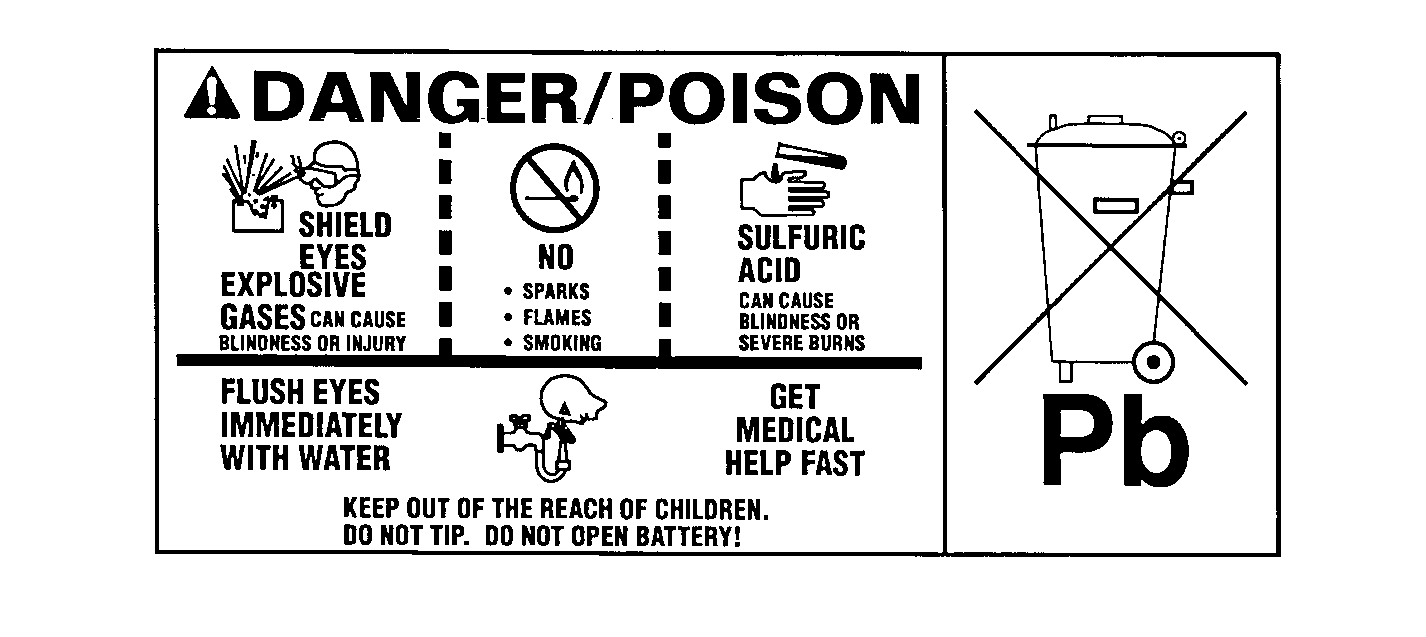
Caution: This vehicle is equipped with a Supplemental Inflatable Restraint (SIR) System. Failure to follow the correct procedure could cause the following conditions:
• Air bag deployment • Personal injury • Unnecessary SIR system repairs • Refer to SIR Component Views in order to determine if you are performing service on or near the SIR components or the SIR wiring. • If you are performing service on or near the SIR components or the SIR wiring, disable the SIR system. Refer to Disabling the SIR System.
Caution: Unless directed otherwise, the ignition and start switch must be in the OFF or LOCK position, and all electrical loads must be OFF before servicing any electrical component. Disconnect the negative battery cable to prevent an electrical spark should a tool or equipment come in contact with an exposed electrical terminal. Failure to follow these precautions may result in personal injury and/or damage to the vehicle or its components.
Battery
The maintenance free battery is standard. There are no vent plugs in the cover. The battery is completely sealed except for two small vent holes in the side. These vent holes allow the small amount of gas that is produced in the battery to escape.
The battery has 3 functions as a major source of energy:
| • | Engine cranking |
| • | Voltage stabilizer |
| • | Alternate source of energy with generator overload. |
The battery specification label contains information about the following:
| • | The test ratings |
| • | The original equipment catalog number |
| • | The recommended replacement model number |
Battery Ratings
A battery has 2 ratings:
| • | Reserve capacity |
| • | Cold cranking amperage |
When a battery is replaced use a battery with similar ratings. Refer to the battery specification label on the original battery or refer to Battery Usage .
Reserve Capacity
Reserve capacity is the amount of time in minutes it takes a fully charged battery, being discharged at a constant rate of 25 amperes and a constant temperature of 27°C (80°F) to reach a terminal voltage of 10.5 V. Refer to Battery Usage for the reserve capacity rating of the original equipment battery.
Cold Cranking Amperage
The cold cranking amperage is an indication of the ability of the battery to crank the engine at cold temperatures. The cold cranking amperage rating is the minimum amperage the battery must maintain for 30 seconds at -18°C (0°F) while maintaining at least 7.2 volts. Refer to Battery Usage for the cold cranking amperage rating for this vehicle.
